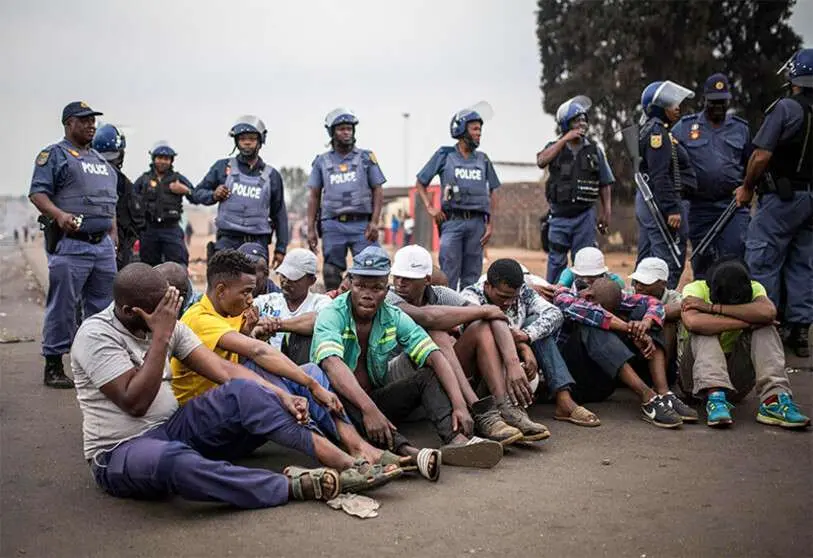Mandela's spirit evaporated in South Africa

An ex-president, Jakob Zuma, convicted of corruption, refuses to surrender to the authorities and his supporters go on a frenzied and devastating rampage of destruction, looting and murder. It took only minutes for the initial, supposedly peaceful protest demonstrations to turn into violent riots with a mounting death toll, injuries, looting and burning of shopping malls over the course of a hellish week.
It is South Africa, Africa's richest country, that embraced democracy with Nelson Mandela, after the scandalous apartheid system had been liquidated. Thirty years on, is there any of the spirit that Mandela wanted to instil in his countrymen and inspire the rest of the continent? At first glance, it does not seem so.
The simplistic black-white antagonism that presided over more than three decades of racial segregation has given way to another, just as shocking dichotomy: rich and well-off on one side, poor on the other. As it turns out, three decades into the country's new democracy, the gap between rich and poor has not only not been bridged, but has continued to widen. In the meantime, there has been a proliferation of residential complexes heavily protected by barbed wire and all kinds of security measures, the most ostensible sign that those inside such compounds are the ones who dominate the country's economy, finances and, of course, politics.
The current president, Cyril Ramaphosa, claims that this destructive outbreak of violence was perfectly planned and orchestrated, although without clarifying by whom and from where. However, sources close to his government suggest that all this has been brewing within the country itself, implicitly alluding to the fact that former president Zuma is plotting to regain power in one way or another, even provoking the outbreak of a full-blown civil war.
Zuma would have set himself up as the leader of this majority of the poor, made up above all of those who swell the country's staggering unemployment figures: 35%, which soar to over 50% among the young. Among these masses, there is a deepening sense of despair that the new democracy has not changed things, that the poor are still poor, with the prospect of becoming even poorer, while the powerful are only increasing the size of their fortunes. The difference with the pre-Mandela regime is that the latter were always white Afrikaners and the present ones are the new black elites.
Apart from forcing the country's former white minority to admit the inclusion of black managers and shareholders in their companies and businesses, little else has been done in these thirty years of democracy. Neither have the far-reaching reforms been undertaken to guarantee the population's general access to the basic rights of education and health care (the coronavirus pandemic has brought these latter shortcomings into stark relief), nor have credible draft laws been drawn up for the redistribution of the enormous wealth in South Africa's subsoil. Nor has there been any real redistribution of land, once exclusively in white hands and today largely "squatted" and turned into desolate wastelands, following the bad example set by other countries, such as Zimbabwe, whose extremely rich agriculture was followed by confiscation and penury.
The current outburst therefore needs to be redirected by tackling those essential reforms that have been put off for too long. Otherwise, we will once again be witnessing something far more serious than a wave of looting, and the everlasting drama that a large African country, in this case the richest on the continent, could slide down the slope of civil war and misery.

